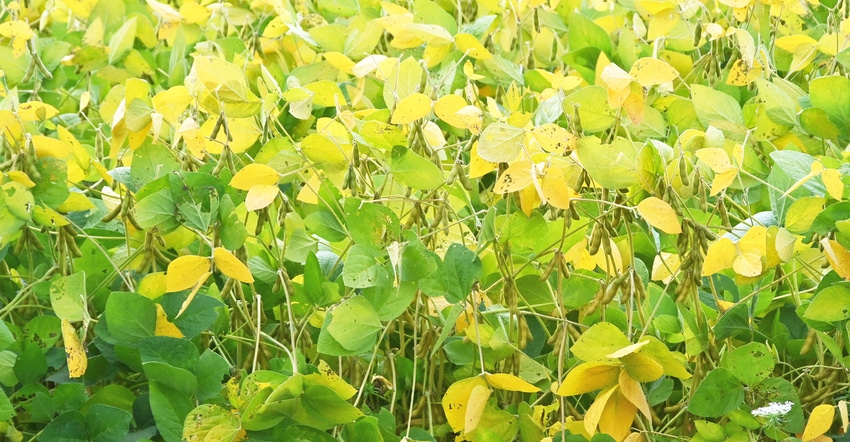
As the growing season continues, many farmers may begin to see the effects of iron deficiency chlorosis taking hold in their soybean fields.
For the research team at Peterson Farms Seed, yellowing plants are a signal at its IDC testing plots. Product manager Dennis Schultze oversees the research programs. “Getting a uniform piece of ground on which to do the testing is critical,” he says. “We’ll be planting these test plots at six different locations around Colfax, N.D., and Foxhome, Minn.”
IDC causes yellowing and browning, and stunted growth in plants, which reduces photosynthesis and, ultimately, yields. “It can become as severe as killing off the soybean plant, but more often, it will stunt and delay them,” Schultze says. “Sometimes, the yield reduction can be up to 50%.”
Another issue farmers encounter with fields affected by IDC is delayed maturity, which means a later harvest.
Schultze says that the cause of IDC comes from the soil itself. “There’s actually plenty of iron in the soil, but certain conditions make it unavailable for the younger plants,” he says.
High levels of sodium carbonate and salt cause the iron particles to bind tightly to the soil particles, where it becomes unavailable to the plants. “I like to see warm weather with weekly rains when the plants are in their third, fourth and fifth trifoliate stages,” he says. “This helps the plants as the salts are washed down the soil profile, allowing them to grow vigorously and develop a good root system.”
Need for rigorous testing
Peterson Farms Seed has a unique IDC testing program, where instead of planting in a field location with a history of iron deficiency chlorosis, they wait to plant until these symptoms develop.
“As farmers see in their fields, they [IDC symptoms] can vary greatly within a few feet. So, we wait to plant in an affected area, resulting in more accurate data,” Schultze says.
Another piece of their research puzzle is utilizing drone and software technology that helps decipher the testing results. “We probably generate more data than needed, but we want to ensure the data is right so we can pass accurate IDC ratings onto our customers to use in their decision-making,” he says.
The research team has planted 12,000 test plots this season, with around 3,000 of those plots being used to confirm IDC scores for current soybean varieties sold by Peterson Farms Seed. The remaining 9,000 plots are being used to test potential new varieties.
“We want to have several years of solid data to determine which varieties we make it into our product lineup,” he says.
With Peterson Farms Seed being an independent corn and soybean seed brand, the company uses its extensive replicated tested programs for the foundation of its product selections.
“An IDC testing location is actually very small at only 60-by-60 feet, and because of the size, we can get very uniform symptoms in the field,” Schultze says. “That consistency greatly enhances our data and makes it more accurate.”
Find a Peterson Farms Seed rep at petersonfarmsseed.com/find-a-rep.
About the Author(s)
You May Also Like






